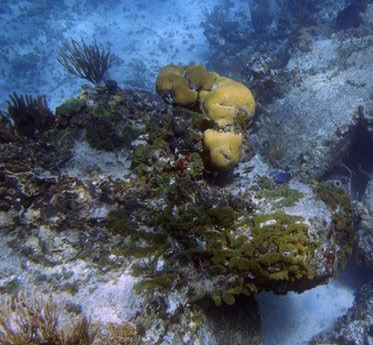Science and Health
Sea sponge genes close to man
(China Daily)
Updated: 2010-08-07 08:45
 |
Large Medium Small |
 |
|
An international team of scientists have revealed that sea sponges (pictured) share almost 70% of its genes with humans, including a large number typically associated with disease and cancer.[Photo/Agencies] |
SYDNEY - Mankind may be descended from apes but Australian scientists have found proof of links to the sea floor instead of the tree tops in a study that reveals sea sponges share almost 70 percent of human genes.
Genetic sequencing of sea sponges from the World Heritage-listed Great Barrier Reef shows the ancient marine animal shares many of its genes with humans, including a large number typically associated with disease and cancer.
"Sponges have what's (considered) the 'Holy Grail' of stem cells," Degnan told AFP.
Exploring the genetic functions of sponge stem cells could provide "deep and important connections" to the genes that influence human stem cell biology, he said.
"(It) might actually inform the way we think about our own stem cells and how we might be able to use them in future medical applications," he said.
The study - published this week in the journal Nature - is the result of more than five years of research by an international team of scientists.
It required the extraction of "really pure DNA" from sponge embryos and a complex sequencing exercise, Degnan said.